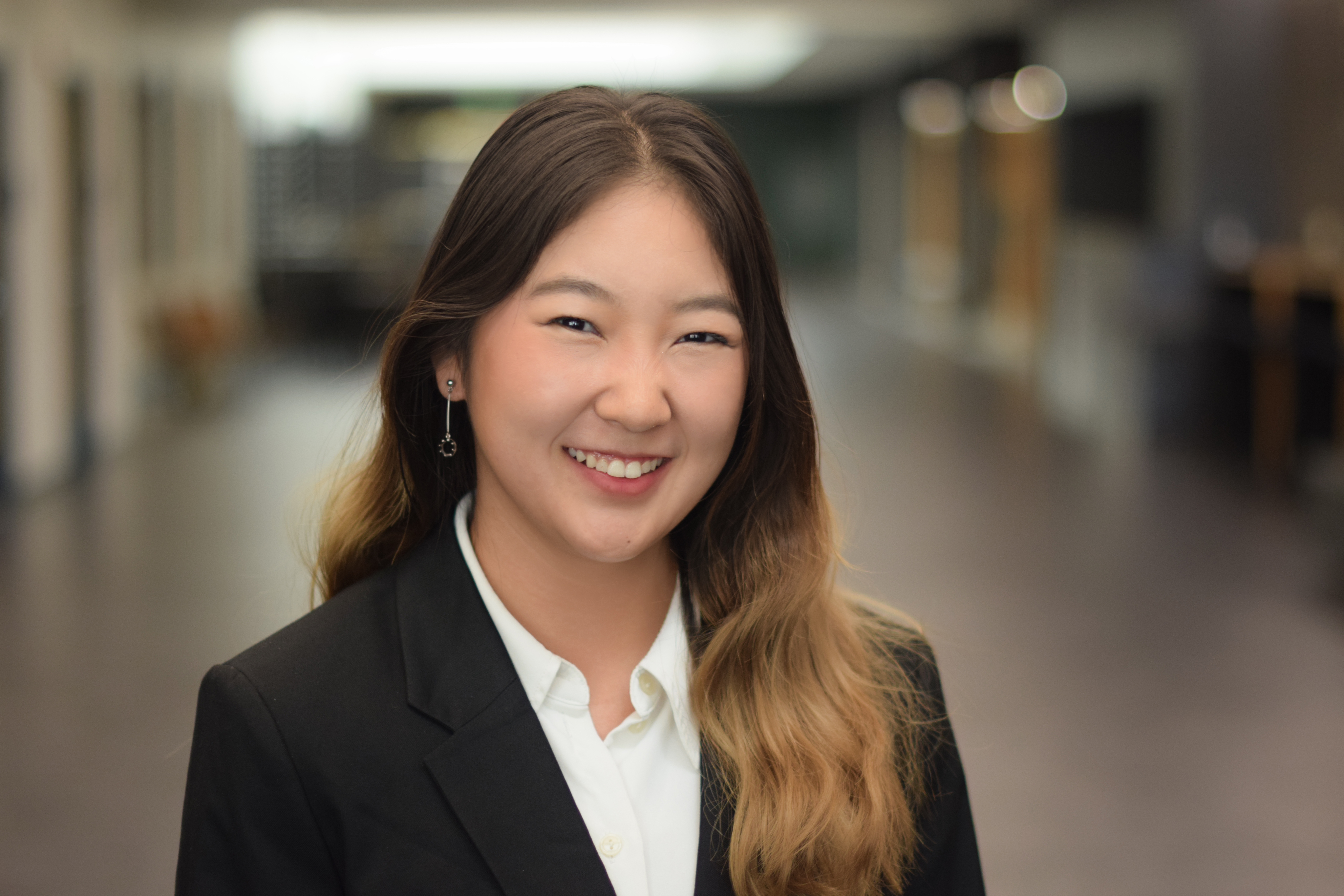Michigan State University is fortunate to have passionate educators who are committed to enhancing the experience of their students and who help to provide the best education possible.
The Graduate School is featuring some of these educators – graduate and postdoc educators – every month to share their unique stories and perspectives on what it means to be a dedicated educator, how they’ve overcome educational challenges, and the ways they have grown through their experiences.
For November 2024, we are featuring Dangkamol Wongthanaroj, a doctoral student in Packaging. In her writeup, Dangkamol shares how she experienced burnout, "now you know” moments, and why she shifted from a traditional teaching approach to a more student-centered one.
What does it mean to be an educator at a university? 
Being an educator at a university goes beyond simply delivering course content. For me, it involves creating a supportive environment that encourages students to actively engage with the material and take charge of their learning. I have taught classes with diverse groups of students, each bringing unique backgrounds and perspectives to the classroom.
These differences, along with my frequent interactions with students, have helped me create an approachable and inclusive environment that promotes student engagement.
Building this supportive environment also means going beyond academic knowledge; I believe that developing practical skills is essential for students’ growth. Through thoughtfully designed assignments and interventions, students can build crucial soft skills like communication, critical thinking, and teamwork - qualities that will benefit them well beyond the classroom.
As a teaching assistant, I bring the unique perspective of being both a student and an educator. This helps me understand student needs while aligning with the instructor’s approach. Ultimately, I view my role as an educator as one of supporting students and remaining flexible to their needs while upholding the course objectives, helping them achieve them, and fostering their growth in essential skills.
Challenges you have experienced and how have you grown from these?
Teaching is definitely challenging - there is no single “right” answer. I’ve tried different approaches, and not everything has gone as planned. However, the good news is that each attempt provides new insights and a valuable “now you know” moment. To grow from these experiences, you have to be willing to adapt, learn from each trial, and embrace the process. Feedback from students and discussions with peers are very important in helping me refine my approach. I enter each semester determined to bring the best of what I have to offer, and always keeping in mind that the goal is to improve each time.
In addition to teaching, I’ve faced challenges in research. In my second year, I had to change my study focus, which was difficult and contributed to burnout. This experience challenged me to truly accept the change, shift my focus to the new topic, and gradually let go of the previous one. A major lesson I learned was to view this shift not as a failure, but as part of the learning process. Reflecting on my progress and prioritizing my mental wellness have been essential to overcoming these challenges, and my motivation is slowly returning.
These experiences have taught me that growth is a continuous journey, and it’s the willingness to learn and improve that truly makes a difference.
What value do you see in Teaching Professional Development?
My teaching began with a traditional approach, where I delivered content and assumed it was the students’ responsibility to understand it. However, I soon realized that my approach needed to change, though I didn’t know how to improve.
Once I engaged in teaching professional development, I learned about various teaching strategies, techniques, and approaches. These changes drastically transformed my perspective, making my teaching more student-centered, and they altered everything I previously knew about teaching.
Teaching professional development has been invaluable in shaping my approach to creating a more effective and inclusive learning environment in my class. It has greatly benefited me and helped me become a better educator. My focus has shifted from asking, “Why don’t students understand?” to considering, “How can I help them understand?” Additionally, my participation in workshops, classes, and fellow cohorts about teaching has slowly cultivated me to define who I am as an educator.
What is one piece of advice you would give other graduate educators?
Learn to say, “I don’t know.” I found this a great practice for staying open-minded and encouraging students to feel comfortable asking questions about what they don’t know. By taking the approach of “I’m here to help,” you can honestly say you don’t know but assure students you will help them find the answer. I’ve found that students genuinely appreciate the support, and it creates a much better learning environment than trying to appear as if we know it all.
As graduate educators, we often feel less pressure than professors to have every answer. Use this as an opportunity to embrace a “glass half full” mindset, focusing on positive intentions. This approach allows you to be more comfortable making mistakes (because you will) while still giving your best as an educator.
What do you enjoy in your free time?
In my free time, I do anything that helps with stress relief! I routinely practice hot yoga, which I find incredibly rejuvenating. It helped me release tension and stay flexible, both physically and mentally. Occasionally, I meditate afterwards, which further clears my mind and opens me up to new perspectives and ideas.
During the breaks or whenever I get a chance, I love to travel and explore new places.


